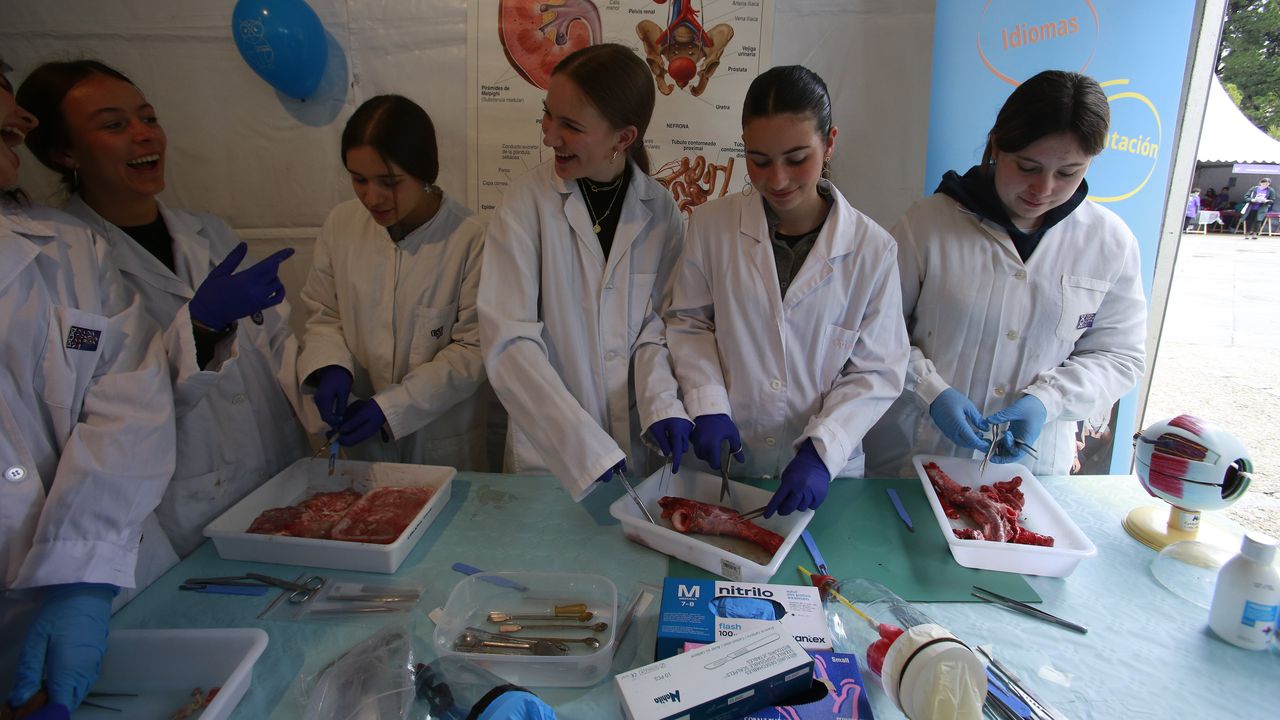Catril Fierro holds a degree in Psychology, a diploma in History of Psychoanalysis and a member of the Institute of Humanities and Social Sciences (INHUS, CONICET-UNMDP). He devotes his research to delving into the roots of scientific research in psychotherapy. In this field, the specialist has been honored with multiple awards, including recognition from the History of the Humanities Forum, the award of a Fulbright Scholarship and the Rodrigo Bellido Award from the Inter-American Psychological Association.
The paper “A Supposedly Objective Thing I’ll Never Use Again: Carl Rogers and Word Association Tests in Emotional Adjustment Research (1898-1927)” has been selected by the Humanities History Forum, which recognizes the best unpublished research. Works developed by young researchers. This material is also published in the specialized scientific journal History of the Science Society Journal of the History of the Behavioral Sciences.
The researcher explains that Carl Rogers is of great importance in clinical psychology and psychotherapy in the twentieth century for several reasons, linked to his contribution to the professionalization of clinical psychology, which includes the beginning of scientific research in psychotherapy. Rogers was the lead author who in the 1940s proposed a new treatment that differed from psychoanalytic therapy and behavioral therapy, which were most widespread and used. “Until now, psychology has been mainly psychoanalysis and experimental studies on animals. Rogers introduced another type of basic and applied psychology: clinical. From here he put forward a basic theory of personality and its changes.”
In this work the author reveals the relationship between theory and empirical practice, and exemplifies how they can best be placed within the intellectual, institutional and cultural context of science. It does so from previously unexplored primary sources.
“Being able to publish in this journal gives a seal to the quality of the work and this is personally gratifying because it increases the visibility of the project, but also of the place where it is implemented: we are talking about INHUS, which is located in Mar del Plata and depends on CONICET and the National University of Mar del Plata, “This is important to me. The award allows us to strengthen international relations and introduce our research groups. It allows us to sit at international tables where these issues are discussed.”
In addition, he was awarded one of twenty-four scholarships offered by CONICET in cooperation with the J. William Fulbright Council for Foreign Scholarships of the U.S. Office of Cultural and Educational Affairs throughout the country. This allowed him to travel to the Cummings Center for the History of Psychology at the University of Akron in Ohio. The Cummings Center is a multimedia center that serves as an educational institution, museum, and historical archive housing hundreds of documentary collections on the history of psychology, especially the history of the United States, and there he was able to work with Dr. Kathy Fay, A. He specializes in the history and archives of psychology.
At the Cummings Center for the History of Psychology, Fierro has access to audio-visual materials, historical artifacts, and more than two dozen primary source documentary collections directly related to his research project: the professionalization of clinical psychology. The psychologist studies the role of schools in the North American public system in professionalizing clinical psychology. For this purpose, he particularly analyzed the archives of Leta Hollingworth, who was Carl Rogers’ dissertation director, and John Whalen, one of the most prolific clinical psychologists, who founded dozens of clinics and was one of the founders of the first professional association for clinical psychology. Clinical psychologists and Henry Goddard, who contributed to the application of assessments, were brought from France, which was a feature of the discipline in the early years.
“I am investigating in what ways, by whom, and by what requirements and resources, the public schools, with their own needs, deficits and problems, created the clients for the first clinical psychologists. The materials that enable you to learn the details of this process range from the private correspondence of these authors, And the documents they wrote but did not publish, and even the records they scribbled themselves so as not to forget them,” the specialist adds.
In addition, Fierro was honored with the Rodrigo Bellido Award, awarded by the History of Psychology Working Group of the Inter-American Psychological Association, the oldest in the region and bringing together all of the Americas. The organization awards numerous awards, but in Fierro’s case the honor was in the category of best unpublished work on the history of psychology for professionals in the early stages of their scientific careers.
The work retraces the story of the first assistants of history’s first clinical psychologist, Leitner Witmer, who coined the terms clinical psychology and clinical psychology. Fierro points out that references say that Witmer established clinical psychology based on social requirements, but the same sources barely mention the names of two assistants, who were likely the ones who brought the first clinical cases to the specialist: Mary Marvin and Margaret Maguire.
“Whitmer didn’t create a psychology clinic out of nothing. He spent years evaluating kids with learning problems, kids whose teachers didn’t know why they weren’t learning, but in the story of the time it came down to the fact that the teachers didn’t have the ability to learn.” “The training needed to be able to deal with these children and then they went to the psychology department at the nearest university so that the specialist could find a solution,” Fierro says. When delving into the history of teachers and taking into account that to do this work they had to have extensive professional training, and if they turned to a specialist in psychology it was because they knew that the discipline had begun to study how to learn, what are the different ways of learning, and how to deal with With children who do not fit the normal learning model.
The award-winning work locates these two professionals biographically and institutionally, recovering their identity, and the year they were born and died, data that had previously been overlooked. Moreover, it places the history of teachers in the context of the crisis that affected the profession in the United States between 1880 and 1910, which faced significant growth in terms of the number of students, the length of the school year, the number of schools, change in the curriculum, immigration, and children who did not speak language, and children with significant mental retardation who share classrooms with “normal” children.
Fierro found that after the establishment of the first psychiatric clinic, there was a “boom” in the North American educational system, and teachers were the most vulnerable in the workplace within a system that received the negative consequences of all the changes. The specialist adds: “I evaluated twelve variables that show the extent of the increasing demand for teachers, which coincides with the emergence of studies on the mental health of teachers, and epidemiological and statistical studies on mental health licenses, which ranged from deterioration to complete collapse.” .
“What makes me very proud is that from Latin America and especially from Argentina it is produced at the level of other universities that have specific departments in the history of science, because sometimes it is difficult to compete with them, which have more funding. I feel that besides individual work, It is important on a symbolic and strategic level to have more and more Latinos involved in this topic.
Written by Daniela Garanzini for CONICET Mar del Plata
References: Fierro, C. (2023). There is supposed to be something objective that I will never use again: Word association and the search for validity and reliability in emotional adjustment research from Carl Jung to Carl Rogers (1898-1927). Journal of the History of Behavioral Sciences1-26. https://doi.org/10.1002/jhbs.22272





